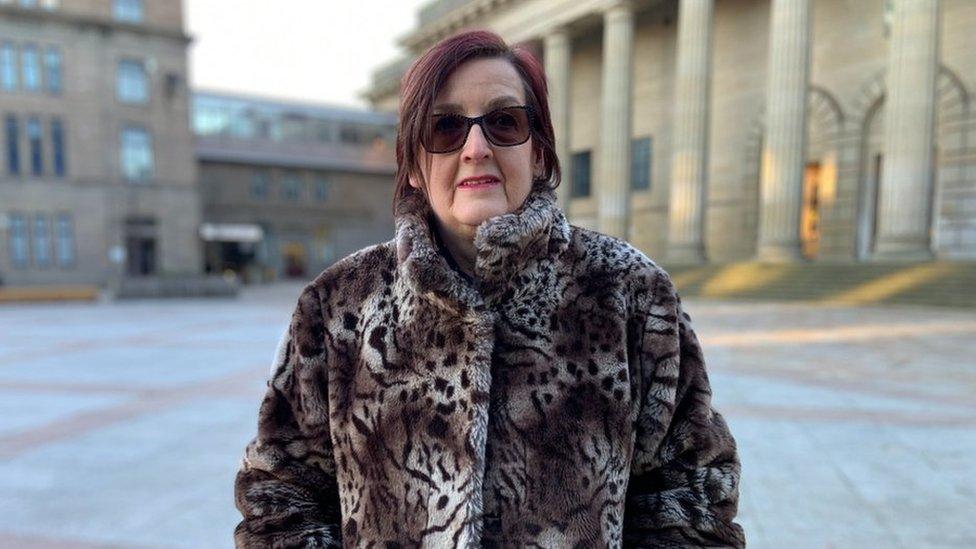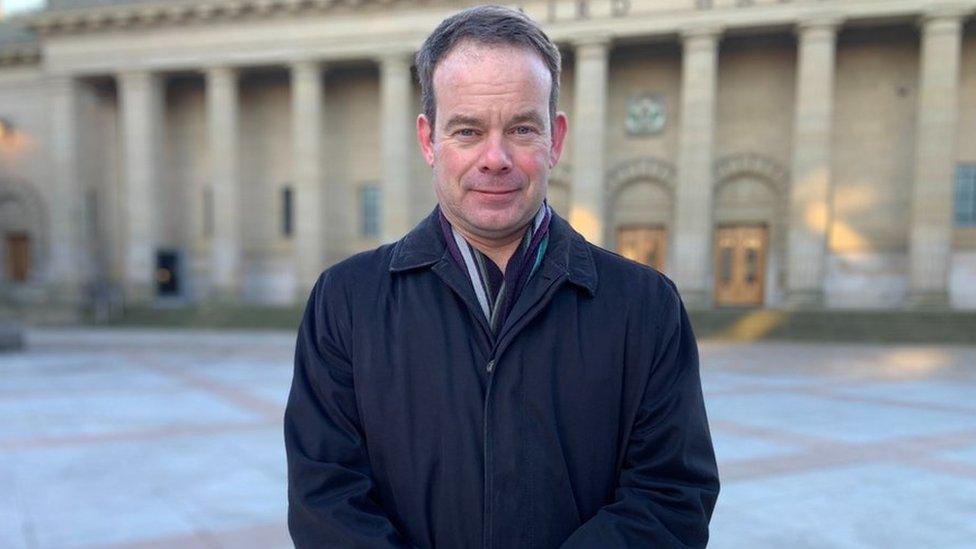I faced an 18-month wait for help to get off heroin
- Published

Cheryl Ferguson criticised addiction services in Dundee
Former addict Cheryl Ferguson knows first hand the human cost of heroin addiction.
She started smoking the drug when she was 24. Within days she was injecting.
"I couldn't fund my habit so I had to go out begging, stealing, prostitution," she told BBC Scotland.
"In and out of prison. I lost my kids, my family - everybody through it."
Cheryl, from Dundee, was addicted to heroin for eight years and feels she was let down by the support services in the city.
"When I first went to get help I was offered methadone but it was an 18-month waiting list," she said.
"I just didn't agree with it. When somebody's seeking help they want help there and then - not 18 months down the line.
"People can be dead in 18 months' time."
Once Cheryl finally received the methadone prescription, she waited a further nine months before seeing a medical professional.
"They're not even trying to find out why you took drugs, they're just putting you on a prescription and leaving you," she said.
"In my experience, that was a free rein to go and use."
Dundee - which has been dubbed the drugs death capital of Scotland - is now trying to change those shortcomings.
The city's Alcohol and Drug Partnership (ADP) has launched a five-year strategy with a renewed focus on prevention, delivering the right care, promoting compassion as well as tackling stigma and discrimination.

Pauline's daughter was a heroin addict for many years
People and communities who have been affected by drug and alcohol abuse were involved in drawing up the plan.
Pauline Kinsman joined the ADP to share her own experiences of addiction support services in the city.
"My daughter was a heroin addict for 23 years," she said.
"She's now clean. She went in the drug service, some of that was horrendous. It was really, really difficult.
"But [with] her strength of character and the support around her, she managed to get off drugs."
Ms Kinsman found that support services in Dundee were "virtually non-existent and totally ineffectual".
"I'm hopeful things will change," she added.
"There has to be a kinder service. Treat people with a bit of dignity and they'll respond.
"If you treat people like they're just a number, they won't use your service. They'll just carry on using illicit drugs and dying."

John Wylie is the ADP's independent chairperson
The partnership hopes to enhance same-day prescribing, improve access to residential rehabilitation and increase opportunities for people with lived experience to become involved in improving services.
"For me, the most important thing is culture and giving people some hope," said John Wylie, the ADP's independent chairperson.
"This is about delivering services by people for people.
"The most important immediate thing is saving lives. We know that that is absolutely critical."
A national drugs death taskforce was set up in 2019 as the Scotland's drugs deaths continued to climb, with more than 1,300 fatalities in 2021.
The latest national figures have shown a slight fall in deaths, but Dundee still has the highest rate of all local authority areas.
John Wylie believes it's important to humanise the statistics of those affected by drug abuse and involve the wider community in prevention and support.
"We know that drugs and alcohol and addiction are intrinsically linked to things like poverty, domestic abuse, the protection of children, supporting vulnerable people, significant issues for our health service," he added.
"So we want to bring all of that together. The real objective of this is to focus our activity on getting things done - not talking about things, but moving on with action.
"We know that's what the people in Dundee want."